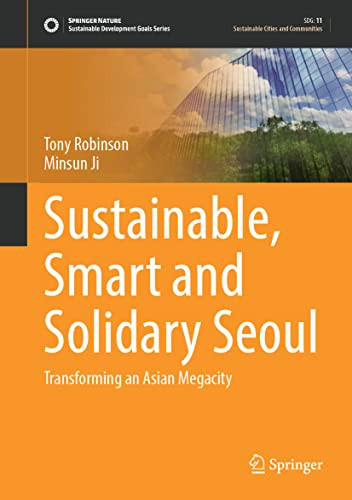

Most ebook files are in PDF format, so you can easily read them using various software such as Foxit Reader or directly on the Google Chrome browser.
Some ebook files are released by publishers in other formats such as .awz, .mobi, .epub, .fb2, etc. You may need to install specific software to read these formats on mobile/PC, such as Calibre.
Please read the tutorial at this link: https://ebookbell.com/faq
We offer FREE conversion to the popular formats you request; however, this may take some time. Therefore, right after payment, please email us, and we will try to provide the service as quickly as possible.
For some exceptional file formats or broken links (if any), please refrain from opening any disputes. Instead, email us first, and we will try to assist within a maximum of 6 hours.
EbookBell Team

4.8
14 reviewsThis book showcases how innovative state policy in Korea transformed Seoul from one of the world’s most impoverished, polluted, and congested cities into a global leader in green urban planning, smart city innovations, and social economy initiatives that have dramatically improved the local quality of life. Today, Seoul’s urban planning innovations are increasingly touted as replicable best practices for export to cities across the globe.
This book describes how innovative state policy has made Seoul a world leader in sustainable, smart, and solidary urban initiatives. Beginning in the 1960s, Seoul led the fastest urbanization and modernization project in world history, becoming a colossal 26-million-person metropolitan region and one of the largest footprints of humanity on earth, transforming the nation from one of the world’s poorest to having the 10th largest GDP in 2020.
Today, Seoul has become one of the most productive and innovative urban agglomerations on earth. Seoul’s residents enjoy the world’s highest penetration of high-speed internet, a model mass transit system, and advanced smart-city technologies. The vast city has become increasingly green and sustainable, while also recycling about 90% of all waste. Seoul has become a leader in social economy innovations like cooperative villages, mutual benefit societies, and social investment funds that advance equitable development goals amid a booming capitalist economy.
To broaden our imagination of what good urbanism can achieve, this book reviews Seoul’s recent innovations in smart, sustainable, and solidary urbanism, including: green urban planning, sustainable development through recycling and reuse, well-managed mass transit, smart city design, and solidarity economy initiatives.